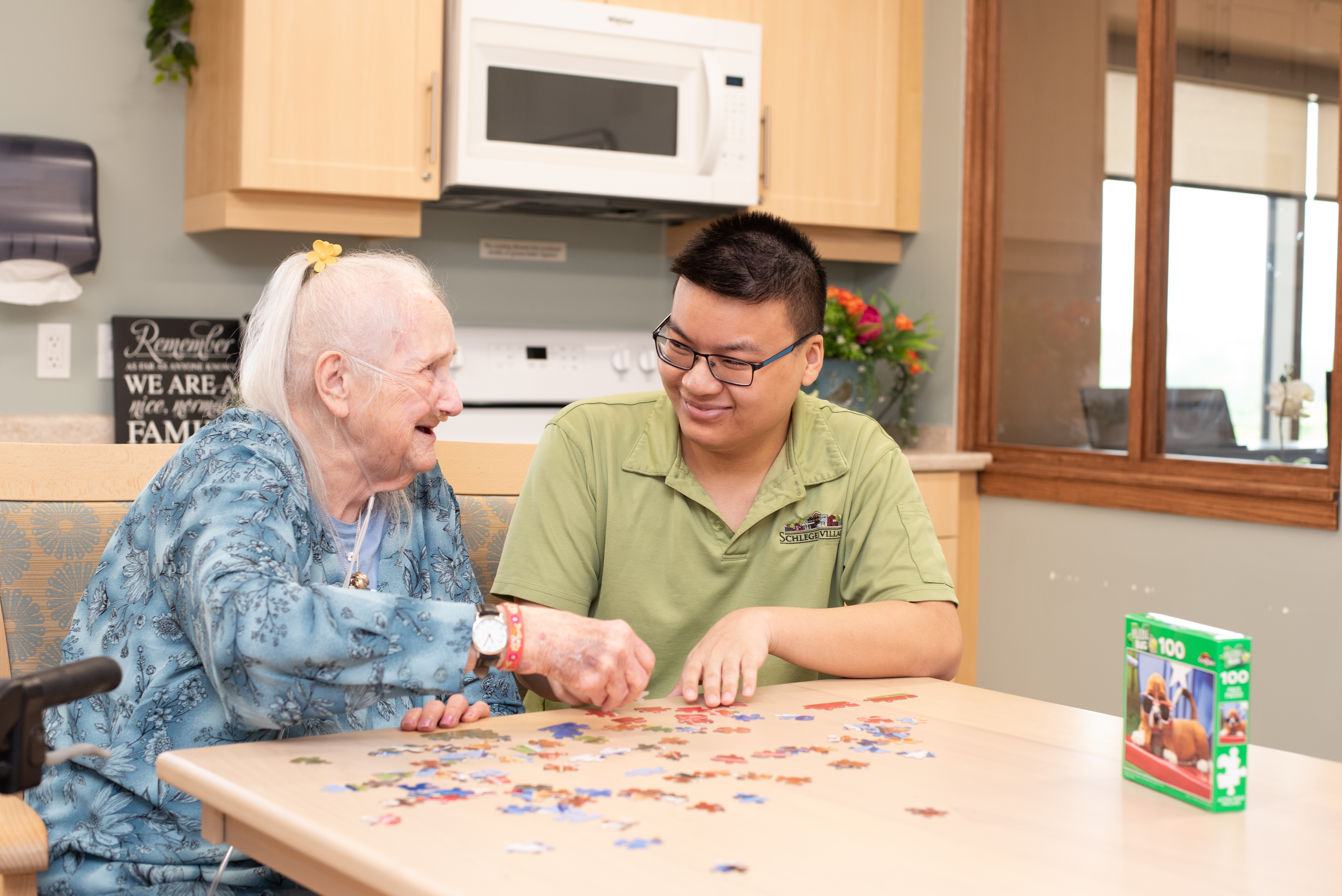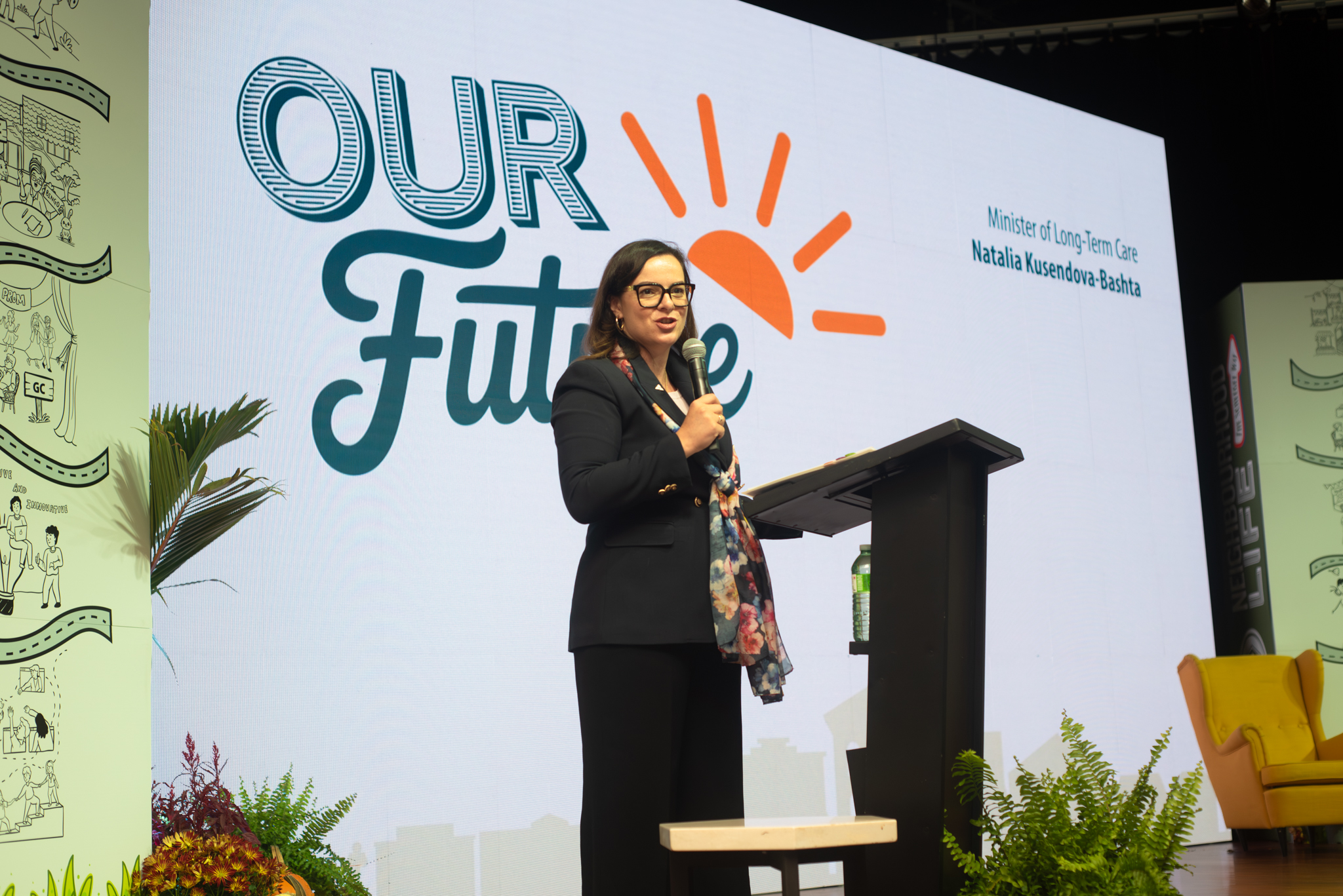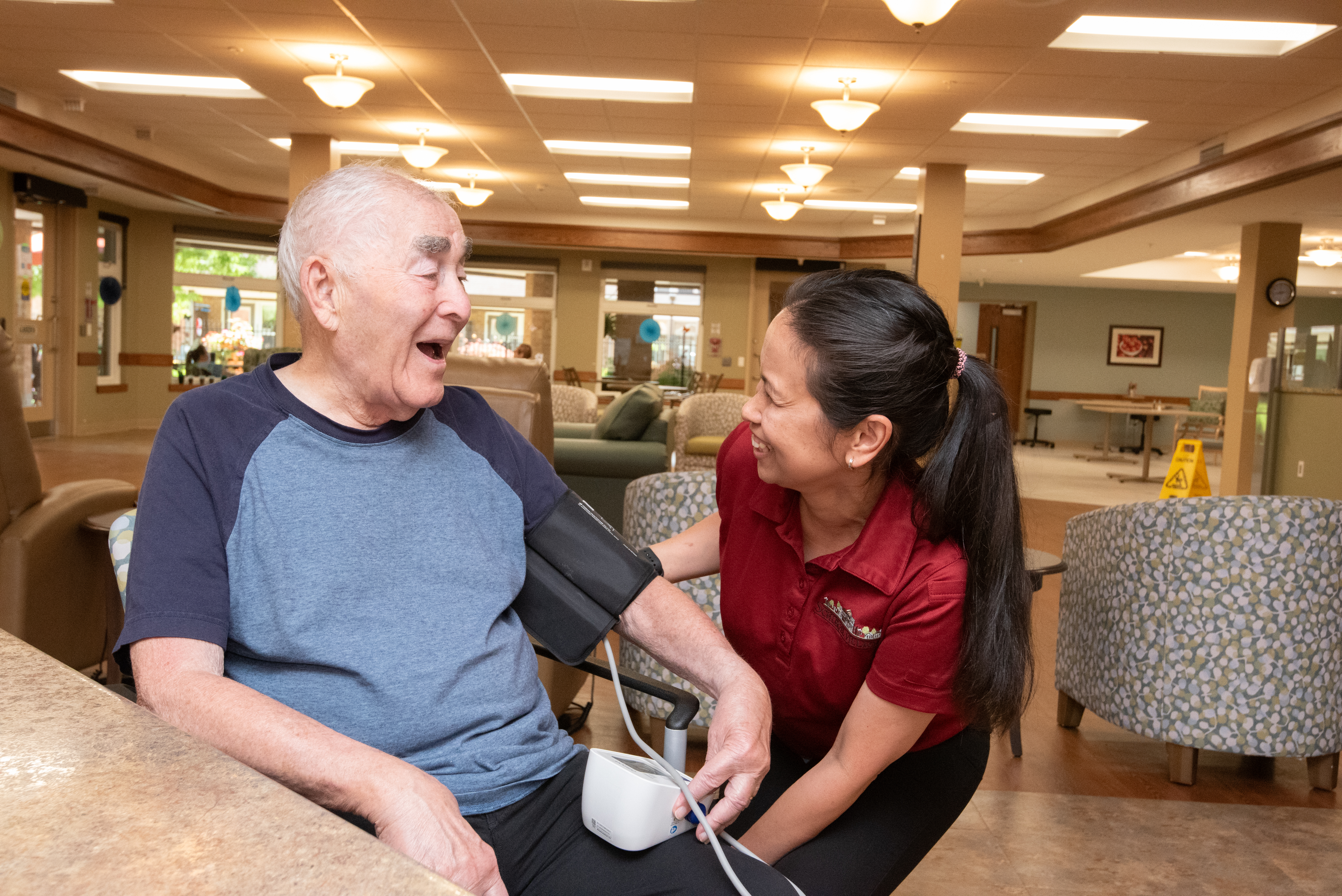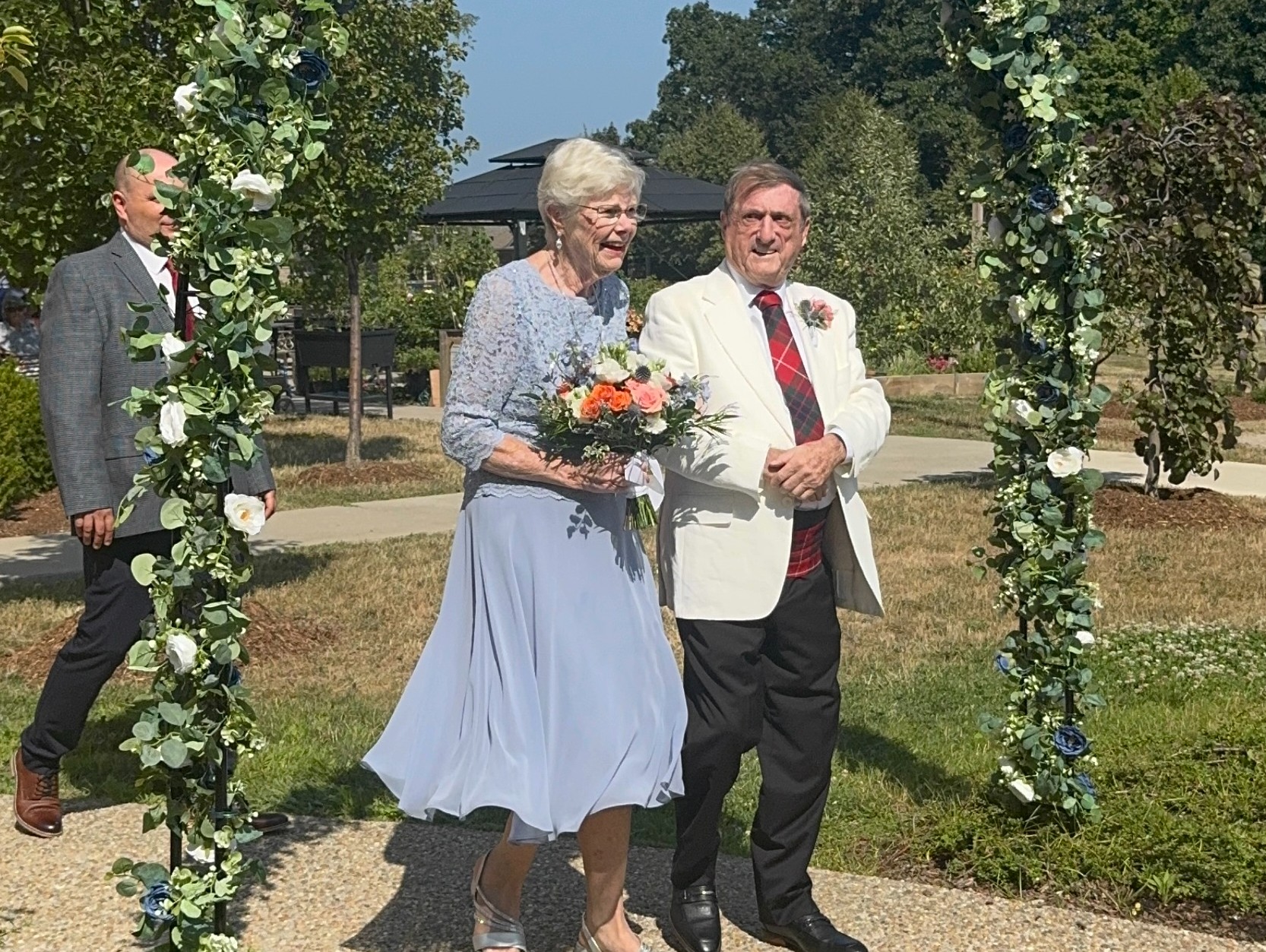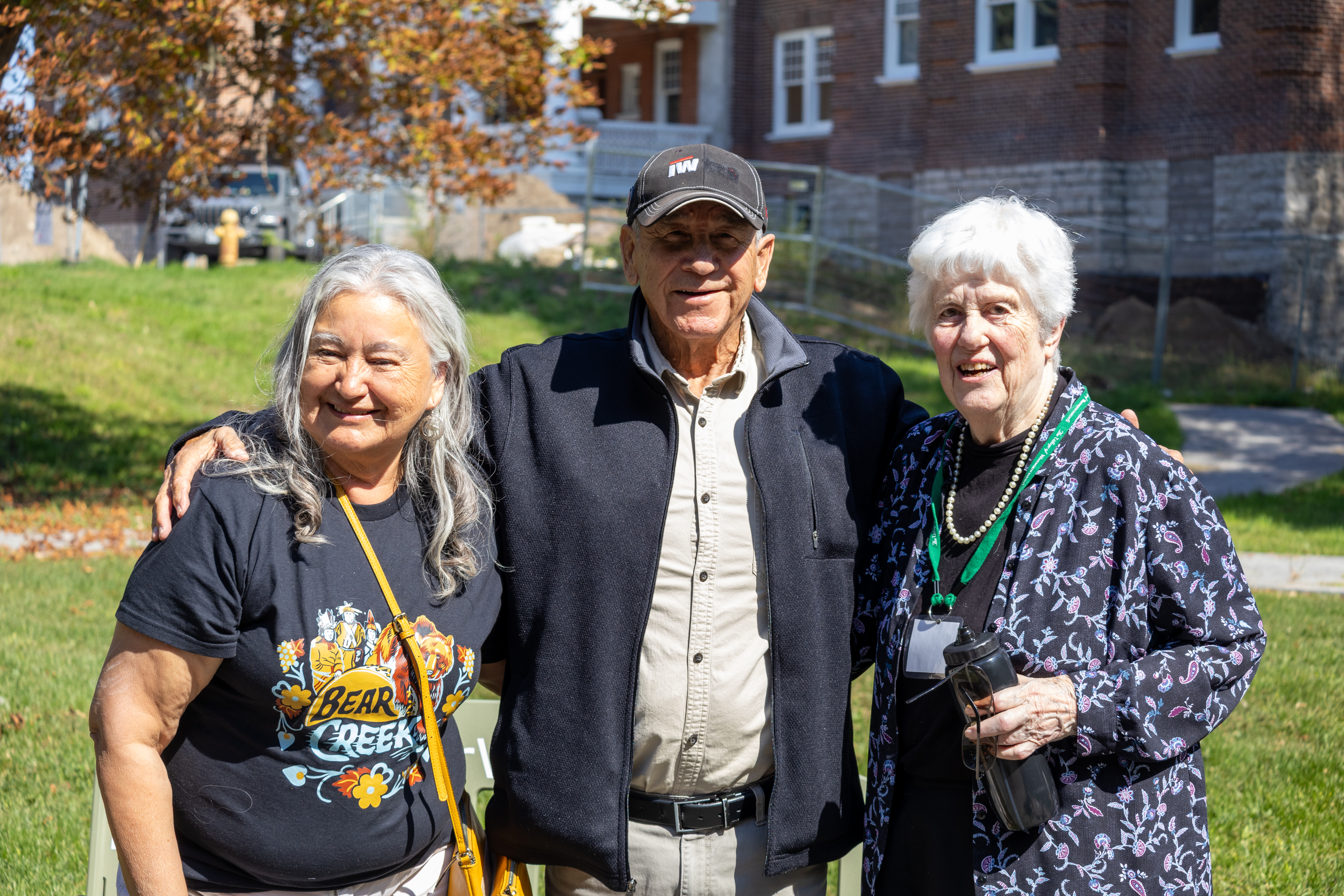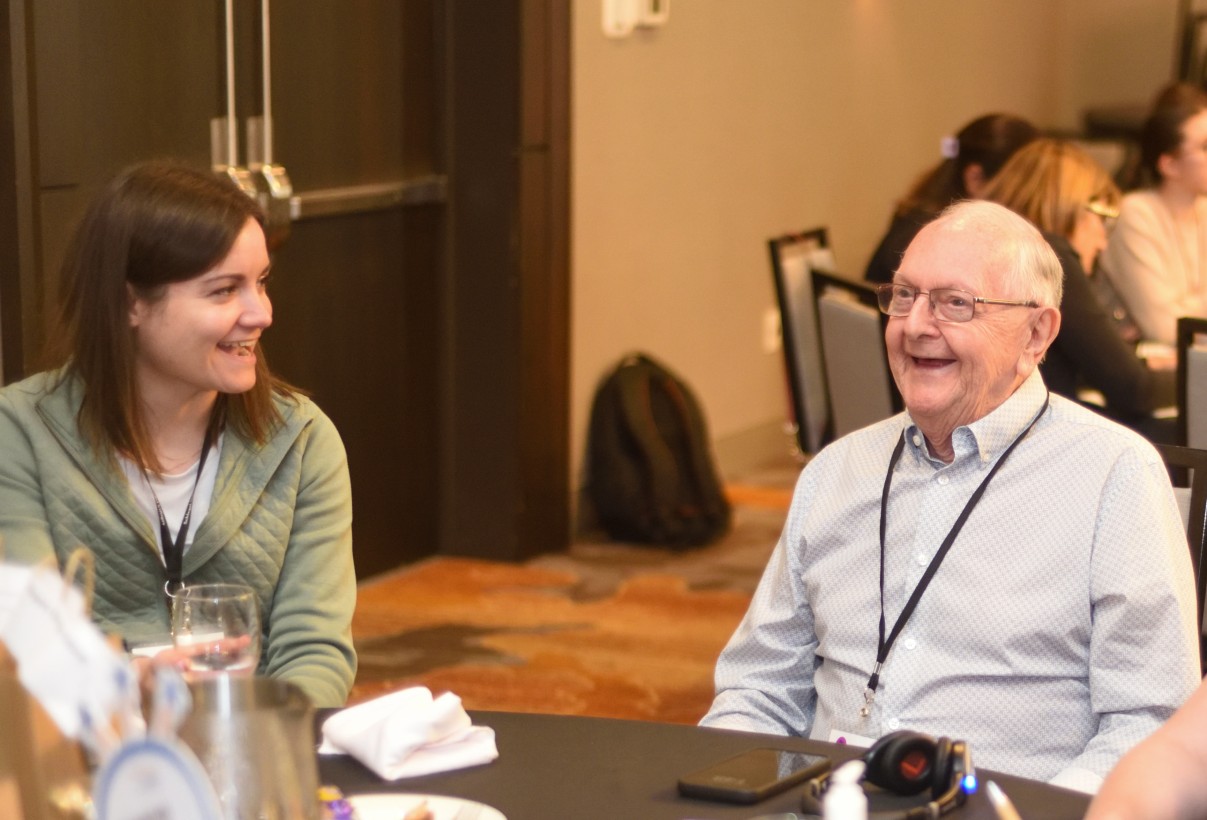Harry Deslegte has reinvented himself many times over the course of his 82 years. His life – beginning with being kicked out of his home at 16 with only a paper bag of belongings – has been marked by resilience, a refusal to settle for mediocrity, and a steadfast determination to face every challenge head-on.
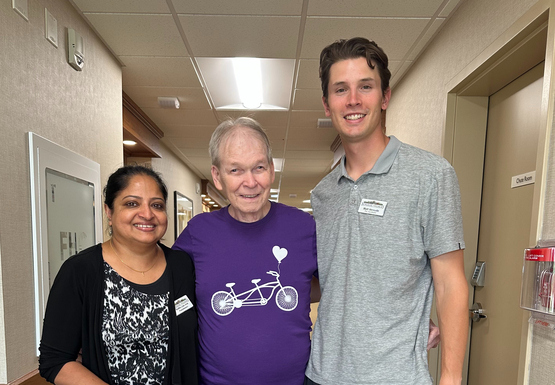 Perhaps his greatest challenge, however, has come most recently since moving into The Village of Winston Park, following the devastating effects of a major and sudden health decline.
Perhaps his greatest challenge, however, has come most recently since moving into The Village of Winston Park, following the devastating effects of a major and sudden health decline.
Two strokes – one minor and one far more significant – left him hospitalized at Grand River Hospital in Kitchener. From there, he moved to what was formerly known as Freeport Hospital for rehabilitation.
“I was flat on my back,” he recalls. “I couldn’t walk, couldn’t sit up. I couldn’t help myself. Basically, if I was being moved, they had to use the lift to put me in a body sling and move me into the chair.”
The next step he envisioned was total dependency, even the inability to feed himself.
“And if I was going to end up like that,” he says, “then I’d just as soon be dead.”
Long-term care was the next step in Harry’s hard journey. He admits he had preconceived notions about what that meant, and they weren’t positive. In his mind, long-term care was simply a place people went to die. But his perspective changed almost immediately upon arriving at Winston Park.
“I think within the first five or ten minutes, I felt I was home,” he says. “They made me feel really welcome.”
Today, just over a year later, he sits in the lounge on the outer edge of the neighbourhood he calls home. He walked in methodically, steadied by a walker, and makes time for conversation before his scheduled physiotherapy session with Sindhu Jose.
“I never miss an exercise class,” he says.
Harry’s road to recovery wasn’t easy or seamless, but few worthwhile things in life ever are. He may downplay it, but team members at Winston Park remember a time when they thought he might not recover at all. At his lowest point, he had stopped eating – for many, a clear sign that the final stage of life is near.
But something changed.
That same self-determination that carried Harry through the toughest moments of his life was reignited. He asked to start eating again, wanting to rebuild his strength.
“It took a while to develop a sense that I just don’t want to be in this bed, laying here,” he says. “I was just bound and determined that if I was going to be able to do for myself, then I was damn well going to do it!”
Despite his fierce independence, Harry is humble. He gives much of the credit for his recovery to the Program for Active Living (PAL), the team at Winston Park and the Village environment itself.
“The girls tell me it’s my willpower,” he says, “but I feel great being here. I love the place. I love the girls that work with me, and they’ve helped me come back — so to speak.”
There are too many team members to name, he says, but as he wraps up the conversation and heads toward his suite to prepare for his exercise session, he sees one of the personal support workers who’s been with him since Day One: Vicky.
“It is all his determination,” Vicky says when asked what she believes made the difference in Harry’s transformation. “He wants to get better, and he tries a lot — every single day. I am so happy for him and so proud of him.”
There’s inspiration in every part of Harry’s life story — in his resilience, in his reimagined beginnings, and now, in his ability to completely flip his expectations of life in long-term care.
“With a bit of hard work, you can recover,” he says.
